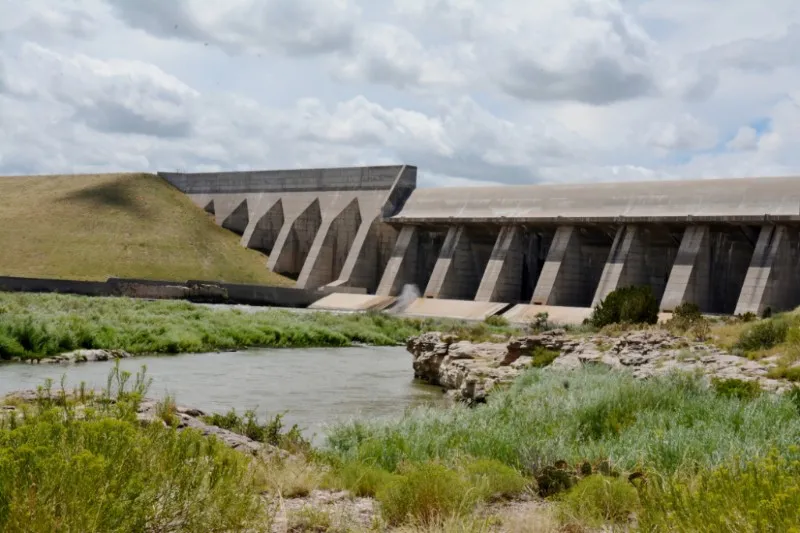
Daily Audio Newscast - December 6, 2024
Six minutes of news from around the nation.
7.0 magnitude earthquake reported off Northern California coast, tsunami warning canceled; Fewer Hoosiers vote in 2024 amid early voting tensions; 'ALICE at Work' paycheck-to-paycheck struggle; New push for protection for manatees, Florida's 'gentle giants.'
Transcript
TThe Public News Service Daily Newscast, December the 6th, 2024.
I'm Mike Clifford.
A magnitude 7.0 earthquake hit northern California in Humboldt County Thursday.
The epicenter is off the coast near Petrolia in Humboldt County.
That from KGO San Francisco.
They report a tsunami warning that had been issued for coastal areas in California and Oregon, including San Francisco, was canceled just before noon local time.
KGO reports at least 5.3 million people in California were under the tsunami warning, the U.S.
Geological Survey said in a yellow alert, which predicted localized but minimal damage.
Next up to Indiana, where voters are embracing early voting, with 54 percent of ballots cast in the 2024 general election coming before Election Day.
We get more in this Indiana Citizen, Free Press Indiana, Indiana News Service collaboration.
According to the Indiana Secretary of State, turnout overall dropped to 61 percent, down from 65 percent in 2020.
With early voting gaining traction, advocates say improving access and safety could drive higher turnout in future elections.
Common Cause Indiana's Julie Yvonne sees the trend statewide but says restrictive policies are holding voters back.
She highlights outdated registration deadlines and limited voting hours as barriers.
It was pretty steady up until about noon.
We observed this all over.
It dried up.
In St. Joseph County, a new early voting site drew consistent crowds with voters citing convenience as a reason they showed up early, despite high interest in early voting, intimidation and misinformation also loomed.
This story was produced with original reporting from Marilyn Odendall for the Indiana Citizen.
I'm Joe Ulery, Public News Service.
And a recent study shows that things are not improving for Arkansas families who fit into the ALICE category.
At Public News Service, we like to collaborate.
We get the details now in this Arkansas Delta Informer, Winthrop Walker Feller Foundation, Arkansas News Service collaboration.
ALICE stands for Asset Limited, Income Constrained and Employed, which means the residents are working but don't make enough money to cover their basic needs.
Wesley Brown with the Arkansas Delta Informer says unforeseen circumstances make it hard for people to get ahead.
The price of groceries, health care, child care, take that with the wages not going up as fast as inflation, and then people have those programs during the pandemic like the child tax credit and there were some programs that helped people on rent.
He says nearly 11,000 more Arkansans are struggling to make ends meet than in 2022.
It's estimated nearly 47 percent of Arkansas households are living paycheck to paycheck.
I'm Freda Ross reporting.
This is Public News Service.
With manatee season in full swing now, Florida's gentle marine mammals gather in warm waters to escape the winter's chill.
But these iconic creatures face growing challenges from habitat loss.
A new proposal from the U.S. Fish and Wildlife Service aims to address these threats by revising critical habitat protections for the first time in nearly 50 years.
The agency proposes protecting more than 1.9 million acres of critical habitat for Florida manatees and over 78,000 acres for Antilin manatees in Puerto Rico, marking the first update since 1976.
Elizabeth Fleming is a senior Florida representative with Defenders of Wildlife.
It's a long overdue revision of looking at what is vital habitat for manatees to find warm water, to be able to feed, to travel, to give birth and safely raise their young.
I'm Tramiel Gomes.
Meantime, Michigan Senator Debbie Stabenow has introduced a new farm bill legislation renewed every five years to govern much of U.S. agriculture.
Freda Garza, who originally reported this story for Grist, says the bill follows months of disagreement between Democratic and Republican lawmakers over its priorities.
Senator Stabenow, a longtime advocate of programs that support farmers and more access to nutritious foods, has created a farm bill she believes will help farmers cope with the climate crisis.
Earlier this week, she presented the details of her bill, the Rural Prosperity and Food Security Act, to the Senate.
It includes $39 billion more in funding above the normal farm bill baseline.
It puts more farm in the farm bill for all of our commodities, not at the expense, though, of rural communities or American families.
Stabenow needs Republican support in the Senate Agriculture Committee and the House, where Democrats lack votes.
It's unlikely Stabenow's bill will pass.
Crystal Blair reporting.
This story was first reported by the Rural News Network.
And after a modest decline starting in 2018, sales of antibiotics used to raise U.S. livestock increased more than 4 percent in 2022, which experts say risks more deaths in people from antibiotic-resistant infections.
The details in this sentiment, New Mexico News Service collaboration.
Stephen Roach with the group Food Animal Concerns Trust, says by species, the latest federal data show 2022 sales of medically important antibiotics for cattle are now higher than any year since 2016.
Pigs in the U.S. it's up by 24 percent and in cattle it's up by 10 percent.
I'm Roz Brown.
This is Mike Clifford for Public News Service, member and listener supported.
Hear us on interesting radio stations, your favorite podcast platform.
Find our content and trust indicators at publicnewsservice.org.

















